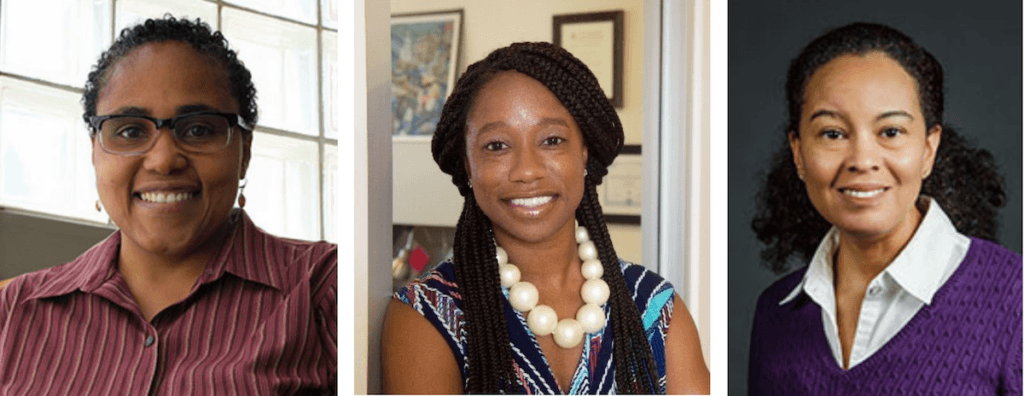
In an era when many are exploring effective ways to increase the representation of minorities in STEM, how do organizations go about implementing new strategies? The first step is often by understanding the effectiveness of the ones that currently exist.
A recent paper co-authored by biostatistics alumni Scarlett Bellamy (ScD ’01), Loni Tabb (PhD ’10) and Knashawn Morales (ScD ’01) looked at the development, implementation, and impact of a federally funded pipeline initiative, the Fostering Diversity in Biostatistics Workshop at ENAR (FDBW), aimed at increasing the number of underrepresented minorities successful in graduate training and professional careers in biostatistics.
The FDBW is a half-day workshop that takes place at the annual meeting of the Eastern North American Region (ENAR) of the International Biometric Society (IBS). The initiative, originally established in 1999 by a group of ENAR members, including previous Department Chair and previous ENAR President, Dr. Louise Ryan aimed to address the lack of racial and ethnic diversity in biostatistics by introducing undergraduate students from these groups to the many aspects of pursuing a graduate degree in biostatistics, creating peer and professional networking opportunities, establishing a viable mentoring network, and providing an overview of the variety of career paths for both Master’s level and doctoral trained biostatisticians.
The study examining the impact of FDBW, published in the Journal of Statistics Education, analyzes the attendee demographics, timing of participation, and the impacts of the workshop on mentoring. Its findings highlight the importance of mentorship as a source of technical knowledge and understanding for students as well as a source of support, empathy, and respect for mentees as they make their way through the challenges of their training program. Additionally, the FDBW has become a resource that fosters a sense of support and mentoring that some attendees may have limited access to at their home institutions, particularly for identifying mentors (peer and non-peer) from individuals from similar backgrounds.
The study also shows that participation in the pipeline program creates a self-reinforcing cycle with positive, reinforcing impacts all career levels from students to professionals to those transitioning between career stages. The sustained impact of the workshop is indicated by the increased participation (e.g., participants of past FDBWs volunteering for organizing roles in future workshops) and leadership advancement of prior participants, as evidenced by Bellamy herself, who served as the President of ENAR in 2017.
The paper is exciting as the first study of its kind to quantitatively evaluate the impact of a diversity focused workshop on the field of biostatistics and for its capacity to serve as a roadmap for the development of sustainable initiatives to promote diversity in biostatistics and STEM more broadly.



